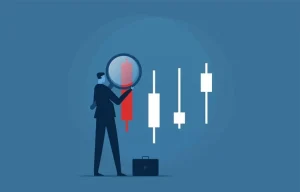Introduction
Debt can feel like a heavy anchor dragging you down. It can stress you out, limit your choices, and even affect your sleep. But fear not! It’s entirely possible to live a debt-free life. Let’s dive into 8 proven strategies to help you break free from the debt cycle.
1. Understand Your Money Mindset
Before we delve into specific strategies, it’s crucial to understand your relationship with money. Are you a spender or a saver? Do you have a fear of missing out (FOMO)? Your mindset plays a significant role in your financial habits.
Identify Your Money Personality
Understanding your financial tendencies is the first step towards change. Are you a natural saver who finds joy in accumulating wealth, or a spender who enjoys immediate gratification? Recognizing these traits helps tailor your approach to managing money.
Challenge Negative Beliefs
Are you telling yourself stories about money? Maybe you believe you’ll never be able to save or that debt is a normal part of life. Replace these with positive affirmations. Believe in your ability to manage money wisely and achieve financial freedom.
Set Financial Goals
Having clear objectives will keep you motivated and focused. Whether saving for a vacation, paying off a credit card, or building an emergency fund, setting specific goals provides direction and purpose.
2. Create a Realistic Budget
A budget is your financial roadmap. It helps you track income and expenses, identify areas for savings, and make informed financial decisions.
Track Your Spending
For a month, record every penny you spend. This will give you a clear picture of your financial habits. It might surprise you to see where your money is going.
Categorize Expenses
Divide your expenses into needs (housing, food, utilities) and wants (entertainment, dining out). This distinction helps prioritize spending and find areas to cut back.
Allocate Funds
Assign specific amounts to each category based on your income. Ensure your essentials are covered first, then allocate the remaining funds to wants and savings.
Build an Emergency Fund
Aim to save at least three to six months’ living expenses for unexpected situations. This fund is a financial cushion, preventing you from falling into debt when emergencies arise.
3. Prioritize Debt Repayment
If you already have debt, focus on paying it off as quickly as possible.
List Your Debts
Make a list of all your debts, including the balance, interest rate, and minimum payment. This comprehensive view helps you strategize your repayment plan.
Choose a Repayment Method
Consider the “debt avalanche“ (focus on the highest interest rate debt first) or “debt snowball“ (focus on the smallest debt first) method. Choose the one that keeps you motivated and makes the most financial sense.
Increase Your Payments
Pay more than the minimum amount whenever possible to reduce interest charges. Even small additional payments can significantly shorten the repayment period.
Consolidate Debt
If you have multiple high-interest debts, consider consolidating them into a single loan with a lower interest rate. This simplifies payments and can reduce the total interest paid.
4. Boost Your Income
Increasing your income can accelerate your debt repayment journey and build your savings.
Explore Side Hustles
Utilize your skills to earn extra money through freelancing, consulting, or online platforms. Side hustles can provide a substantial income boost without requiring a long-term commitment.
Negotiate a Raise
Prepare a strong case for a salary increase based on your performance and contributions to the company. Don’t be afraid to advocate for your worth.
Sell Unused Items
Declutter your home and earn extra cash by selling unwanted items online or at garage sales. This not only provides extra income but also simplifies your living space.
5. Cut Back on Expenses
Finding ways to reduce your expenses can free up more money for debt repayment and savings.
Cook at Home
Eating out can be expensive. Prepare meals at home to save money. Plus, home-cooked meals are often healthier and more enjoyable.
Reduce Utility Bills
Conserve energy by turning off lights, adjusting thermostats, and taking shorter showers. Small changes in your daily habits can lead to significant savings on utility bills.
Find Free Entertainment
Explore free activities like parks, libraries, and community events. Enjoying life doesn’t have to come with a hefty price tag.
Negotiate Bills
Contact your service providers to negotiate lower rates for your phone, internet, or cable. You’d be surprised how often you can get discounts just by asking.
6. Build Good Credit Habits
A good credit score can save you money on loans and credit cards.
Pay Bills on Time
Consistent on-time payments are crucial for building good credit. Set reminders or automate payments to avoid late fees.
Limit New Credit
Opening too many credit accounts can negatively impact your credit score. Be selective about applying for new credit.
Monitor Your Credit Report
Check your credit report regularly for errors and unauthorized activity. This helps maintain a good credit score and prevents identity theft.
7. Automate Your Finances
Automating your finances can help you stay on track and avoid impulsive spending.
Set Up Automatic Savings
Transfer a portion of your income directly to your savings account. This ensures consistent saving without having to think about it.
Automate Bill Payments
Ensure your bills are paid on time by setting up automatic payments. This avoids late fees and maintains your credit score.
Use Budgeting Apps
Utilize technology to track your spending and create budgets. Budgeting apps can simplify financial management and provide insights into your spending habits.
8. Seek Professional Help
If you’re struggling with debt, don’t hesitate to seek professional advice from a financial advisor or credit counselor.
Evaluate Your Options
A financial advisor can help you create a personalized debt repayment plan. They can provide insights and strategies tailored to your financial situation.
Explore Debt Relief Programs
Credit counseling agencies offer guidance and support for individuals facing financial challenges. They can help negotiate with creditors and provide debt management plans.
Conclusion
Breaking free from the chains of debt is an achievable goal. By understanding your financial behavior, creating a solid budget, and implementing strategic steps, you can take control of your financial future. Remember, small, consistent changes can lead to significant results. Viewing debt repayment as a journey, not a destination, is essential. Celebrate your milestones, stay motivated, and don’t be afraid to seek professional help if needed. You can build a debt-free life and achieve financial freedom with discipline, determination, and strategies.
FAQs
1. How long does it take to become debt-free?
- The time it takes to become debt-free varies depending on the amount of debt and your repayment strategy. Consistent effort and strategic planning can significantly reduce the timeline.
2. Is it better to pay off debt or save money first?
- It’s often recommended to prioritize high-interest debt repayment while maintaining a small emergency fund. Balancing debt repayment with saving ensures you’re prepared for unexpected expenses.
3. What is the debt avalanche method?
- The debt avalanche method focuses on paying off debts with the highest interest rates first. This approach minimizes the total interest paid over time.
For more informative blogs Click Here.
Subscribe to our Credits-Based Research System:
Pay only for successful research calls!
FAQs:
-
1. How to earn money daily from trading?
Earning money daily from trading involves strategies like day trading, where traders capitalise on small price movements within the same day. Success requires real-time market analysis, quick decision-making, and risk management.
-
2. How to earn money from equity trading?
To earn money from equity trading, you need to buy stocks at a lower price and sell them at a higher price. Success depends on researching companies, analysing stock trends, and using technical or fundamental analysis.
-
3. How to earn money from share trading in India?
In India, share trading offers profit potential through buying and selling stocks on exchanges like the NSE and BSE. To maximise returns, traders should use market research, tools like technical analysis, and risk management strategies.
-
4. How to make money from share trading in India?
Making money from share trading involves selecting the right stocks, timing the market, and implementing trading strategies like swing trading or day trading while staying informed about market trends.
-
5. How to transfer money from a trading account to a bank account?
To transfer money from your trading account to your bank, log into your trading platform, navigate to the funds section, and initiate a withdrawal request. The money will typically be credited to your linked bank account in 1 to 3 days.
-
6. How to withdraw money from a trading account?
You can withdraw funds by logging into your trading account, selecting the withdrawal option, and selecting the amount to transfer to your bank account. Ensure your bank account is linked and follow any steps your broker requires.










